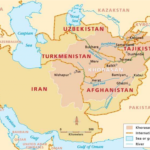The implications were loud and clear when Indian Prime Minister Narendra Modi proclaimed from a stage at a Bharatiya Janata Party (BJP) rally, “This was just a pilot project. We were just practicing. Now, we will carry out the real thing.” This statement was echoed and reverberated throughout India, and the world, by the BJP leadership, politicians and spokespeople across various forums. This, according to Ajai Shukla, is what analysts are calling the “new normal” – India will retaliate for any terror attack perceived to be linked to Pakistan.
For those who know the sub-continent, and the tenuous peace that exists between both these nuclear powers, this level of saber-rattling is nothing new. In fact, since the infamous Butcher of Gujrat took to the political stage, India has seen more division among its people, with no indications that it will decrease . From his aggressive pre-election speeches against Muslims and Pakistan to his open-handed policy to Hindu extremist groups, Modi’s India has been attempting to establish a regional hegemony by cozying up to the US-sponsored successive Afghanistan governments and expanding their unproven claims of cross-border terrorism from Pakistan, while continuing to damage India’s reputation as a secular state globally.
India’s “surgical strike” in Balakot inflamed an already smoldering fire. India’s numerous Line of Control firing violations, the continuous accusations of Pakistan sponsoring attacks against Indian military targets at Uri, Pathankot and Pulwama, all three carried out by Jaish-e-Mohammad (JeM), the human rights abuses highlighted by the United Nations Human Rights Commission , and Modi’s instigation of the Afghanistan government to make claims of Pakistan sponsoring terrorism inside Afghanistan, have forced Pakistan to respond in military, diplomatic and mass media circles.
Within hours of the attack, Indian Foreign Secretary VK Gokhale, claim that India had struck the “biggest training camp of Jaish-e-Mohammad in Balakot,” and “a large number of JeM terrorists were killed.” Indian media began reporting between 250 and 300 dead in the attack. The Pakistan Army’s Inter-Services Public Relations (ISPR) not only released photographs and video of the supposed location of the strike, but also took both foreign and domestic journalists there to confirm, that the supposed India “surgical strike” had only broken some trees in a forest and injured an innocent man. The Indian claim has been countered by local villagers and health/emergency services, who are unable to find the location of such a significant attack on the Pakistan side of the border.
The Balakot attack was very different for India. In India, opposition parties, journalists and analysts, who requested details of the strike was met with a chorus of nationalists branding them as traitors for “questioning their nation’s military” and “supporting a Pakistan narrative in India.” Modi’s India is dividing again, which is an advantage to Pakistan.
While the world understands that any conflict between India and Pakistan would be disastrous for the entire region, Pakistan has proven their restraint against repeated Indian instigation attempts. After the Balakot airstrike, Pakistan Air Force (PAF) fighter pilots staged a retaliatory incursion into India. The Indian Air Force (IAF) pushed back but the PAF pilots downed two IAF fighter jets across the Line of Control. The takedown resulted in a captured pilot , who was immediately handed over to India as a demonstration of peace. India quickly responded by returning the body of a civilian Pakistani, who was executed by prisoners in an Indian jail. The post-mortem report shows that Shakirullah’s body “was missing his heart, lungs, stomach and brain.”
From the Indian Supreme Court investigation of the French Rafale fighter jet purchase to the rampant spread of Hindu extremism, India is facing questions on their own credibility and maturity to be considered an emerging super-power, while Prime Minister Modi continues to flex his muscles against political and religious opponents.

India’s New Normal with Pakistan
Syed Khalid Muhammad, the Founder and Executive Director of CommandEleven, brings over three decades of leadership experience, guiding organizations globally in the realms of security, technology, marketing, and management. Notably, he authored "Agency Rules: Never an Easy Day at the Office," a pioneering espionage novel published in 2013. This novel holds historical significance as the first English-language espionage novel written by a Pakistani, achieving international bestseller status and currently available on Amazon.
Furthermore, Syed Khalid Muhammad has made notable appearances on several international TV channels, providing insightful analysis on security and geopolitics.
Since the establishment of CommandEleven in 2015, Khalid has expanded his expertise to encompass analysis, risk and threat assessment, and consultancy in the fields of terrorism, counter-terrorism, counterintelligence, geopolitics, and cognitive warfare. Within CommandEleven, he has successfully cultivated a comprehensive human and electronic intelligence network spanning the Indian subcontinent. Continuously growing, this network extends into various conflict zones globally, providing CommandEleven with actionable, real-time intelligence that forms the foundation of its analytical endeavors.
CommandEleven currently serves multiple clients, including corporate giants, by assisting them in analysis related to security, threat assessment, and threat mitigation strategies in Pakistan and Afghanistan.









